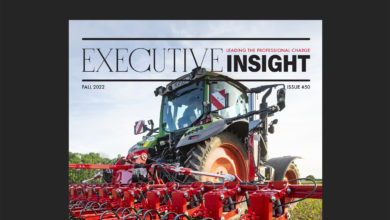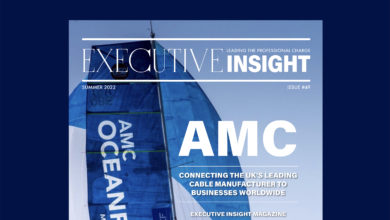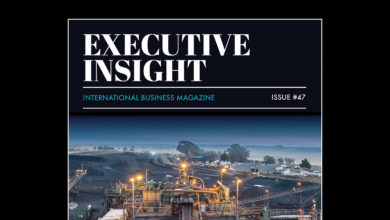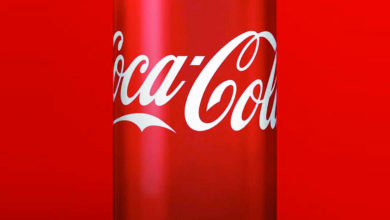With approximately 27,000 employees in over 70 countries, and operations spanning five continents, the American construction giant is an industry super-heavyweight that has come to be regarded as one of the world’s “blue blood” engineering and construction contractors. Although KBR is highly regarded for its capabilities as arguably the world’s foremost oil and gas engineering and construction contractor, – a role in which it designs, builds, and provides maintenance services for liquefied natural gas plants, refining and processing plants, production facilities, and onshore and offshore pipelines, among other things, KBR’s non-energy business is no less impressive.
Much like during the illustrious 1950s and 1960s heydays of MW Kellogg Co and Brown & Root, the original component companies that later merged under Halliburton’s ownership to form KBR’s earlier iteration, Kellogg Brown & Root, KBR continues to provide world-class engineering and construction services to governments and civil infrastructure customers around the world, regardless of their size and complexity. And then there’s KBR’s role as a significant private military company that has seen it provide an array of military support services to battle theatres in the global war on terror.
“At KBR, we work side by side with clients the world over to deliver any project, any time, in any environment, making KBR a leader in the engineering, construction and services industry.
Some of the world’s largest and most technically challenging projects are developed by our teams of professional and competent staff. Our client portfolio testifies to the value perceived in the quality of these technical endeavours.”
Today, business is booming and KBR is growing, as confirmed by the recent release of 2018 Q4 results showing a total revenue of US$1.33bn – a 41.9% year-on-year increase, backed by the strong performance of its tech and government services arm. However, in spite of such figures and growth in recent times, things haven’t always gone KBR’s way in recent years. In spite of its blue riband brand and long-standing reputation for performance excellence, KBR underwent period of transformation in 2014 during which it streamlined its internal operations.
The ability of the company to take on the world’s most demanding and high-profile engineering and construction projects was never in doubt, as its present involvement in Saudi Arabia’s colossal Jubail project proves, but behind the curtains KBR was struggling under the weight of internal inefficiencies. Culturally, the company was siloed and sorely lacking in transparency. Taking on these challenges head-on meant taking on and uprooting a system characterised by its lack of accountability and collaboration.
Such bad habits are yesterday’s news – today, a new culture has been ushered in and implemented that promotes responsibility, transparency, collaboration and openness. The overall success of all areas of KBR’s portfolio are shared collectively, as is accountability, and following a bruising year the company managed to merge, prune, and tweak what was sixteen business units down to just three: technology and consulting, engineering and construction, and government services.
Additionally, the company has also gone to great lengths to develop a comprehensive business strategy which addresses market information and trends, and also takes into account employee insights and customer feedback. This has enabled KBR to gain a clear understanding as to how decisions were made and which direction the company is heading. The results of this leaner, more effective KBR are clear to see in the guise of the high-profile projects the company has been awarded, particularly in the Gulf region which is a bread and butter arena for its energy sector operations. It is no secret that for many decades, KBR has a strong and enduring history in this area:
“We’ve seen the energy and chemical derivatives industries evolve again and again, and we pride ourselves on the contributions we’ve made to help bring to light these innovations. From building the first offshore platform out of sight of land in 1947, to our work today developing, licensing and delivering innovative technologies, to our advanced solutions that support new, renewable forms of production, KBR has always been — and always will be — leading the industry to meet the world’s ever-growing energy and chemicals demands.”
Where once the company was content to manage its Middle Eastern projects from the relative comfort of its Houston head office and London operational centre, no longer. Rather, the company oversees the completion of projects from its offices in Dubai, Saudi Arabia, and Doha – the central hubs that grant KBR regional autonomy over its extensive hydrocarbons portfolio in the region. From here KBR brings both brains and brawn over the course of its turnkey approach to taking on and completing all aspects of a project, from start to finish.
Take its development of the GVA 10000, a floating production unit capable of being deployed within three years of the order being placed. The GVA unit was devised by KBR in the depths of the oil price crash that battered the oil and gas sector only five years ago, representing a solution to Gulf clients who wanted to sure that offshore production remained viable even during such difficult times – the unit proved capable of producing 80,000 barrels of oil daily, 70-million cubic ft of gas, and 40,000 barrels of water, and was operationally viable with oil prices at just US$40 per barrel.
KBR’s involvement in the Saudi Aramco-Dow Chemical Sadara Jubail project in Saudi Arabia, remains its most significant undertaking in the region, however. With twenty-six cutting edge manufacturing plants able to produce three million tons of capacity annually, and a total investment of about US$20 billion, Sadara is now the world’s largest chemical complex ever built in one phase. Over the course of Jubail’s final phases, KBR will continue maintain or increase worker numbers as part of the technical development team currently supporting Saudi Aramco-Dow Chemical.
For KBR to continue its upward trajectory, it is a case of carry on getting the basics right. Continue delivering world-class performance, continue exceeding client expectations and continue providing a superior customer experience. The company has every reason to be optimistic about what the future holds.



